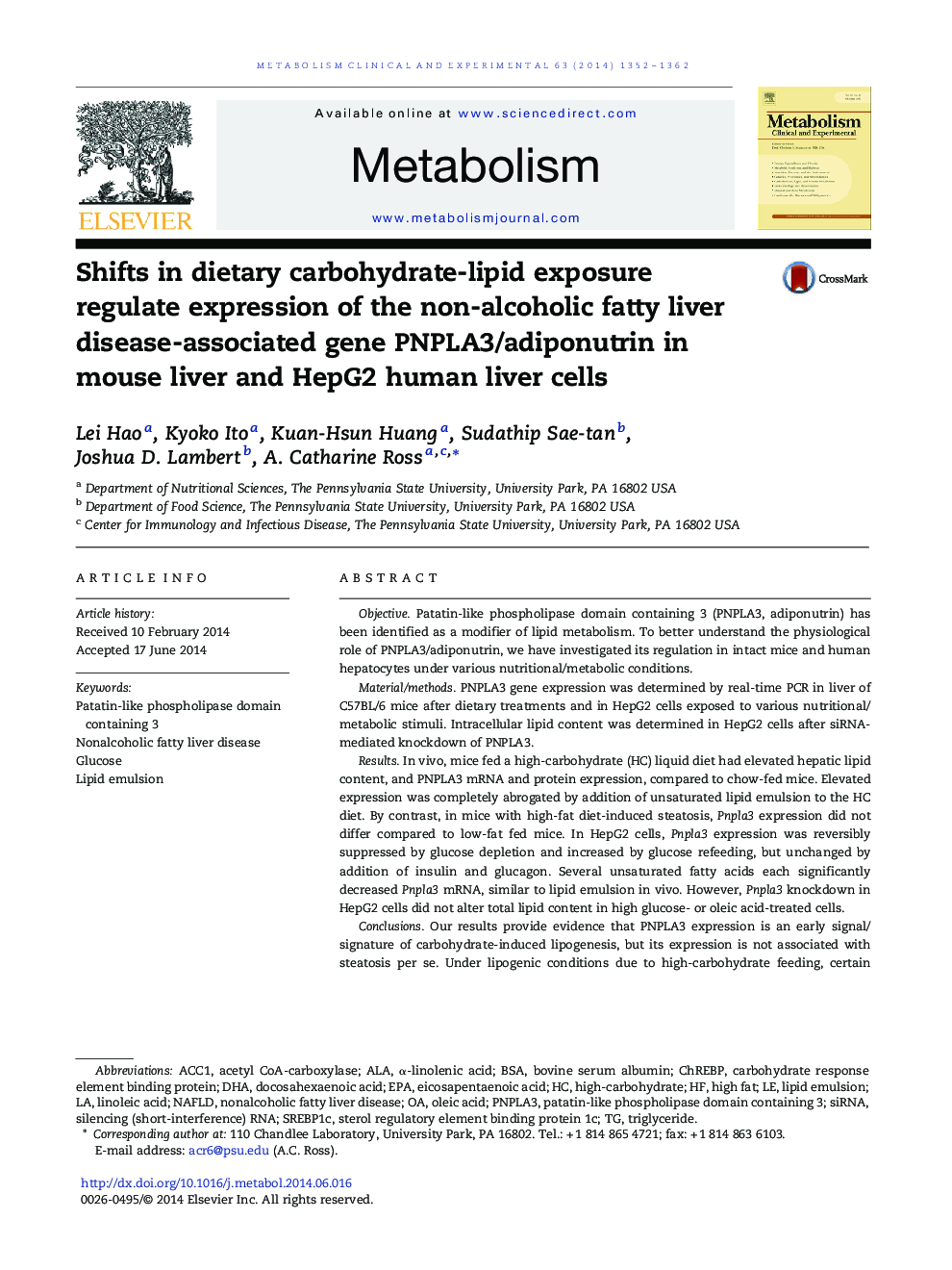| Article ID | Journal | Published Year | Pages | File Type |
|---|---|---|---|---|
| 5903356 | Metabolism | 2014 | 11 Pages |
Abstract
Our results provide evidence that PNPLA3 expression is an early signal/signature of carbohydrate-induced lipogenesis, but its expression is not associated with steatosis per se. Under lipogenic conditions due to high-carbohydrate feeding, certain unsaturated fatty acids can effectively suppress both lipogenesis and PNPLA3 expression, both in vivo and in a hepatocyte cell line.
Keywords
ALANAFLDACC1ChREBPPNPLA3EPASREBP1cBSAsiRNAbovine serum albuminα-linolenic acidOleic acidEicosapentaenoic aciddocosahexaenoic acidLinoleic acidLipid emulsionHigh-carbohydrateNonalcoholic fatty liver diseasetriglycerideDHApatatin-like phospholipase domain containing 3carbohydrate response element binding proteinSterol regulatory element binding protein 1chigh fatGlucose
Related Topics
Life Sciences
Biochemistry, Genetics and Molecular Biology
Endocrinology
Authors
Lei Hao, Kyoko Ito, Kuan-Hsun Huang, Sudathip Sae-tan, Joshua D. Lambert, A. Catharine Ross,
